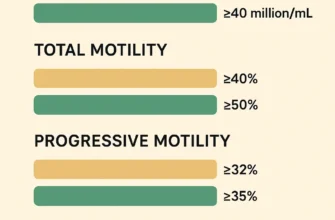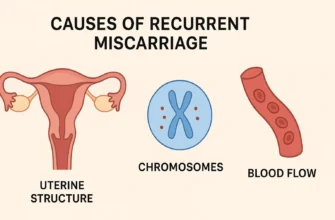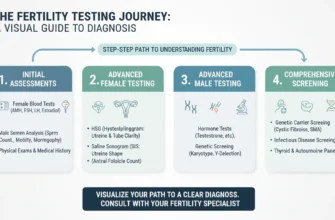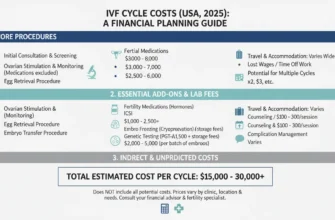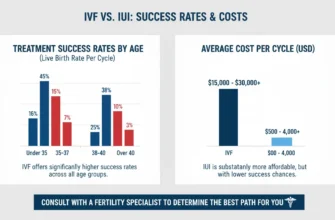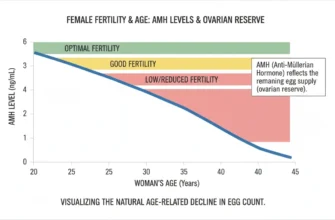What is Best Way to Prevent Hair Loss: Expert Advice

Key Highlights
- Losing around 50-100 strands of hair per day is normal. However, excessive shedding can be a cause for concern.
- Several factors contribute to hair loss including genetics, hormonal fluctuations, medical conditions, and certain medications.
- A balanced diet rich in protein, vitamins, and minerals is crucial for optimal hair growth.
- Maintaining a healthy scalp, managing stress, and avoiding harsh hair treatments can significantly minimize hair loss.
- When experiencing excessive hair loss, it’s essential to consult a medical professional or dermatologist to determine the root cause and discuss available treatment options.
Introduction
A full head of hair represents energy and youth. So, losing hair or thinning can be worrying. Hair loss, or alopecia, has different types of hair loss. It can happen for many reasons like genes, hormonal changes, health problems, or side effects from medicines. The good news is that there are ways to help hair grow back and reduce hair loss if we act early. This guide gives simple tips and strategies to fight hair loss and support healthy hair growth.
Understanding Hair Loss

To address hair loss, I need to know about the hair growth cycle. This cycle has three stages:
- anagen (growth)
- catagen (transitional)
- telogen (resting)
Usually, hair grows for a few years. Then it changes for a short time before resting for a few months. After that, it sheds naturally as new hair pushes it out.
Some factors can mess up this cycle. This can cause extra shedding or slow hair growth. Knowing these factors is important. They include genetics, hormones, lifestyle choices, and medical issues. This information can help people take better care of their hair health.
The Science Behind Hair Loss
The hair follicle is a small but strong part of the skin. It is located in the dermis and is important for hair growth. Hair follicles, including the dermal papilla, make new hair cells that form the hair shaft we see. A mix of hormones, nutrients, and signals controls what these follicles do and how hair grows back.
Many things can upset the hair growth cycle and cause more hair shedding. These include genes, hormone problems, health issues, and some medicines. For example, telogen effluvium is a condition where many hair follicles start resting too soon, leading to noticeable hair loss.
It is important to understand how this works to find out why you are losing hair. Once the underlying cause is fixed, hair regrowth can happen naturally. However, some people might need medical help to boost their follicles and encourage healthy hair growth.
Common Causes of Hair Loss in Men and Women
Hair loss can happen to anyone, no matter their gender. However, some causes of hair loss are more common in men and women. Male pattern baldness, which is also called androgenetic alopecia, is the most typical type of hair loss in men. This hereditary issue leads to a receding hairline and thinning hair on the crown of the head. This is often linked to the cause of hair loss hormone dihydrotestosterone (DHT).
On the other hand, female pattern baldness is another type of androgenetic alopecia. It shows up as thinning hair on the top of the scalp. The exact causes are complicated, but it’s thought that genetics, changes in hormones (especially the drop in estrogen during menopause), and aging play a role.
Other common reasons for hair loss include medical issues like thyroid diseases and autoimmune conditions such as alopecia areata. Scalp infections, nutritional deficiencies, stress, some medications, and tight hairstyles can also lead to more hair shedding.
Essential Nutrients for Hair Health

Your hair, like any other part of your body, needs important nutrients to grow well. These nutrients help create new hair cells and keep hair strands strong. They also help your scalp stay healthy, which is good for hair growth.
Protein is one of the most important nutrients because hair is mainly made of a protein called keratin. Along with protein, you also need vitamins and minerals for healthy hair. This includes iron, zinc, biotin, and vitamins A, C, D, and E. Eating a variety of foods that are rich in these nutrients can help you support hair growth. You might also think about taking supplements to meet your hair’s nutritional needs.
Vitamins and Minerals Vital for Healthy Hair
Certain vitamins and minerals are very important for keeping hair healthy. Biotin is one of them. It helps make keratin, which is the protein found in hair shafts. Without enough biotin, you might lose hair and your nails could become weak. Other B vitamins, like B12 and folate, help make red blood cells. These cells carry oxygen to your scalp and hair follicles, which promotes hair growth.
Iron is another important mineral for hair growth. It helps create hemoglobin, the protein in red blood cells that transports oxygen. If you are low on iron, you may develop anemia, which can lead to hair loss. Zinc is also essential since it helps with cell growth and repair, including the cells in your hair follicles.
Fixing any nutritional deficiencies with a balanced diet is important. If you need help, you can talk to a healthcare professional about getting the right dietary supplements. This can greatly improve your hair health.
Foods to Incorporate into Your Diet for Better Hair
A healthy diet is very important for your overall health. This also includes the health of your hair. Eating certain foods can give your body the nutrients it needs for hair growth and thickness. You should focus on lean protein sources like fish, eggs, beans, and lean meats. These foods help build strong and healthy hair.
Omega-3 fatty acids, which you can find in fatty fish like salmon, can help your hair become thicker and reduce hair loss. A diet filled with fruits and vegetables is also helpful, especially those packed with vitamins A, C, and E. These vitamins have antioxidants that protect your hair follicles from damage.
Here are some foods that are great for healthy hair:
- Salmon: Rich in omega-3 fatty acids, protein, and vitamin D.
- Eggs: A good source of protein, biotin, and other B vitamins.
- Spinach: Full of iron, folate, and vitamins A and C.
- Sweet potatoes: High in beta-carotene, which the body turns into vitamin A.
Natural Remedies for Hair Loss Prevention
Scientific research on natural remedies for hair loss continues. Many traditional remedies may help with hair growth and stop further loss. These remedies often use ingredients that are easy to find in nature, taking advantage of their benefits for hair health.
These remedies include herbal extracts and natural oils. They usually aim to strengthen hair follicles, improve blood flow to the scalp, or nourish the hair shaft. While more research is needed to prove how effective they are, many people think these natural methods are worth trying.
The Role of Herbal Treatments in Hair Growth
Herbal treatments have been around for a long time and are often used for different health issues, including hair loss. One well-known option is saw palmetto. This treatment comes from the fruit of the saw palmetto plant and can be part of a hair care regimen that includes the Mediterranean diet. It is thought to help stop the change of testosterone into DHT, which is the hormone related to male pattern baldness.
Another popular remedy is ginseng. Ginseng has ginsenosides, which are believed to help with hair growth by waking up hair follicles. While more research is needed to see how well ginseng works for hair loss, some studies show good results.
It’s key to remember that herbal treatments can mix with other medicines. So, talking to a healthcare professional is important before adding them to your health routine. While they might help with hair regrowth, more research often needs to be done to find clear answers.
DIY Hair Masks for Strength and Shine
Incorporating DIY hair masks into your hair care routine can be a fun and natural way to boost hair strength and shine. You can use simple ingredients from your kitchen, like coconut oil, honey, and avocado. These ingredients are known for their hair benefits.
Coconut oil is very popular for hair treatment. It has lauric acid that can go deep into the hair shaft. This helps reduce protein loss, making hair stronger and less likely to break. It also adds shine and can help control frizz, making it a great choice for hair masks.
Honey is another great ingredient. It acts as a natural humectant, which means it draws moisture to the hair. Avocado, with its healthy fats, nourishes and hydrates dry or damaged hair, helping to prevent further hair damage. By mixing these ingredients in different ways, you can create custom DIY hair masks that target your specific hair needs.
The Importance of Scalp Care

A healthy scalp is important for strong and lively hair growth. Like the skin on the rest of your body, your scalp also needs care and cleanliness. This helps avoid problems that can slow down hair growth. Issues like dandruff, irritation, and fungal infections can disturb the normal hair growth cycle.
Taking care of your scalp is more than just washing your hair. You need to use the right hair care products. It’s best to avoid harsh chemicals and treatments. Adding scalp massage to your routine can also help. This increases blood flow and creates a better environment for your scalp.
Techniques for a Healthy Scalp Environment
Creating a healthy scalp is important for good hair growth. Adding some simple practices to your routine can help a lot. One important practice is scalp massage. It’s an easy way to encourage blood flow to the scalp. This helps deliver nutrients to hair follicles.
You can do scalp massage with your fingertips or a scalp massager. It helps loosen dead skin, reduce scalp irritation, and relax you. You can add it to your hair washing routine or set aside a few minutes each day to do it on its own.
Using a gentle clarifying shampoo from time to time is also helpful. It can remove product buildup, excess oil, and dirt from the scalp. These things can build up and stop hair growth. But be careful not to wash your hair too often. Over-washing can take away natural oils and may cause dryness and irritation. Choose shampoos that match your hair and scalp type, and avoid those with harsh sulfates or strong detergents that could irritate your scalp.
Choosing the Right Hair Care Products
Choosing the right hair care products is important for keeping your scalp healthy and encouraging hair growth. There are many shampoos, conditioners, and styling products to choose from, which can be confusing. But knowing your hair and scalp needs can help you find the best options.
Pick shampoos that are made for your hair type, whether it’s dry, oily, normal, or color-treated. Stay away from shampoos with harsh sulfates, as they can remove natural oils and cause dryness and irritation. If you have dandruff or a flaky scalp, look for a shampoo that has ketoconazole. This antifungal ingredient can help reduce inflammation and flaking on your scalp.
Conditioners are great for adding back moisture lost during washing. They make your hair easier to manage and less likely to break. Choose a conditioner that matches your hair type and focus on applying it to the ends. Avoid putting it on your scalp, as this can lead to product buildup.
Modern Hair Loss Treatments

When lifestyle changes and natural remedies do not help with hair loss, there are many modern treatments to consider. These include options you can buy in stores, prescription medications, and procedures. Each treatment works differently and may have various side effects.
It’s very important to talk to a doctor or a dermatologist. They can help you find the best treatment for your type and level of hair loss. This way, you can make smart choices for your hair health journey.
Over-the-Counter Solutions and Their Efficacy
For people looking for easy solutions, there are a lot of over-the-counter hair loss treatments that are popular now. Minoxidil, also called Rogaine, is a cream that has been approved by the U.S. Food and Drug Administration (FDA) which you can buy without a prescription. You put it on your scalp two times a day. It is thought to help by encouraging hair follicles and keeping hair growing longer.
Another choice is ketoconazole shampoo. This shampoo is usually for treating dandruff and skin issues like seborrheic dermatitis. Ketoconazole can fight inflammation and fungus. Even though it is not officially approved for hair loss, some research shows it might help with hair growth, especially for those with androgenetic alopecia.
However, over-the-counter hair loss treatments do not work the same for everyone. Some people notice a good change, but others may see very little improvement. It is important to be patient and use these treatments regularly. It can take a few months before you notice any good results.
When to Consider Medical Intervention for Hair Loss
While over-the-counter solutions and lifestyle changes, including dietary changes, can be effective for some individuals experiencing hair loss, certain situations warrant considering medical intervention. If you’re experiencing sudden or significant hair loss, hair loss accompanied by other symptoms such as itching, redness, or scaling of the scalp, or if your hair loss is causing significant distress, consulting a dermatologist or hair loss specialist is crucial.
Medical interventions for hair loss can range from prescription medications to procedures like hair transplantation. Here’s a table outlining some common medical interventions:
|
Treatment |
Description |
|
Finasteride (Propecia) |
A prescription oral medication that blocks the conversion of testosterone to DHT, often used to treat male pattern baldness. |
|
Corticosteroid injections |
Injections of corticosteroids directly into the scalp to suppress inflammation and promote hair regrowth, often used for alopecia areata. |
|
Platelet-rich plasma (PRP) therapy |
Involves drawing a small amount of the patient’s blood, processing it to concentrate platelets, and injecting the platelet-rich plasma into the scalp to stimulate hair growth. |
|
Hair transplantation |
A surgical procedure that involves transplanting hair follicles from one area of the scalp to the thinning or bald area. |
It’s essential to have a thorough evaluation by a qualified medical professional to determine the underlying cause of your hair loss and discuss the most appropriate course of treatment for your specific situation.
Lifestyle Changes to Combat Hair Loss
Our daily choices greatly affect our health, including the health of our hair. Stress, not getting enough sleep, eating poorly, and smoking can all lead to hair loss or slow down healthy hair growth.
Making better choices in these areas can help both your hair and your general health. By managing stress, sleeping well, eating a balanced diet, and quitting smoking, you can support healthy hair growth.
Stress Management Techniques to Reduce Hair Fall
Chronic stress can harm our bodies in many ways, and hair loss is one clear sign. When we feel stress, our bodies produce cortisol, the hormone linked to stress. This can mess up the normal hair growth cycle and cause more hair shedding.
Sometimes, stress can even cause the body to attack hair follicles. This creates a condition called alopecia areata. So, managing stress well is very important to keep healthy hair. Adding relaxation techniques to your daily routine can lower cortisol levels and help balance your mind and body.
Techniques like deep breathing exercises, meditation, yoga, or spending time outside can help a lot with stress. Doing things you like, taking care of yourself, and asking for help when needed are also important steps to lessen the impact of stress on your hair and overall well-being.
The Impact of Exercise on Hair Growth
Regular exercise has many health benefits. It helps your heart, lifts your mood, and improves your sleep. Exercise can also help with hair growth. When you move your body, blood flows better everywhere, including the scalp. This better blood flow brings important nutrients and oxygen to your hair follicles, which helps keep hair healthy.
Exercise can lower stress and improve sleep. This can help hair health too. Lowering stress can balance your hormones and lower cortisol levels. It is good to exercise for at least 30 minutes most days of the week. This is recommended for good health and well-being.
You can choose activities you enjoy, like brisk walking, jogging, cycling, swimming, or dancing. Finding something you like makes it easier to stick with it. Combining regular exercise with a healthy diet and ways to manage stress can support your effort for optimal hair growth.
Hair Care Do’s and Don’ts
Taking care of your hair is more than just washing and conditioning it. It means following habits that keep your hair strong and reduce damage. This includes being careful about how you wash, dry, and style your hair, along with the products you choose.
If you follow these simple rules, you can help your hair stay healthy. This encourages growth and reduces the risk of hair loss. Keep in mind that healthy habits lead to healthy hair.
Hair Washing Best Practices
Proper hair washing is important for keeping your hair and scalp healthy. It might look easy, but there are some key points you should think about for good results. First, pick a shampoo and conditioner that suits your hair type, whether it is dry, oily, or normal.
When you wash your hair, use your fingertips to gently massage the shampoo into your scalp in circular motions, as recommended by the American Academy of Dermatology. Don’t use your nails because they can scratch the scalp and cause irritation. Rinse your hair well with lukewarm water to make sure there’s no shampoo left, as leftover shampoo can irritate the scalp and cause dryness or flakiness.
Conditioning your hair after shampooing is very important. It adds moisture and helps make your hair easier to manage. But remember to apply conditioner mainly to the ends and lengths of your hair, not on your scalp. This stops buildup from happening and keeps your hair follicles clear. Rinse with cool water to help close the hair cuticles and make your hair shine.
Avoiding Common Hair Damaging Habits
Certain hairstyling habits can hurt your hair health. They can cause damage, breakage, and even lead to hair loss. One common problem is using too much heat. Tools like hairdryers, curling irons, and straighteners can be harmful. Heat takes away your hair’s natural moisture. This leads to dryness, brittleness, and split ends.
If you need to use heat styling tools, first spray on a heat protectant. This helps reduce damage. Also, use the lowest heat setting that still styles your hair well. Another habit to skip is towel-drying wet hair too roughly. Wet hair is more likely to break and get frizzy. Instead of rubbing it hard with a towel, gently squeeze out extra water. Then, pat your hair dry with a soft towel.
It’s best not to brush your hair when it’s wet either. This can cause more breakage. Use a wide-tooth comb to detangle your hair gently. Start from the ends and work your way up to the roots.
Conclusion
Hair loss can be upsetting, but you can prevent it with the right information and care. To start, it’s important to understand why hair loss happens. You should also add important nutrients to your diet. Natural remedies and keeping your scalp healthy are crucial steps too. Changing your lifestyle and managing stress is important. Using the right hair care products is also vital. Remember, you need to be consistent to see changes. By following a complete approach that looks at both inside and outside factors, you can have healthier and stronger hair. Start using these tips now to boost hair growth and reduce hair loss effectively.
Frequently Asked Questions
Can nutritional deficiencies lead to hair loss?
Deficiencies in important vitamins and minerals, like iron, biotin, zinc, and some B vitamins, can lead to hair loss. Eating a balanced diet with these nutrients is key. Talk to a healthcare professional about getting supplements. This can help in promoting healthy hair growth.
How effective are natural remedies in preventing hair loss?
The effectiveness of natural cures for hair loss can change based on the type of remedy and the person. Some herbal options, like saw palmetto and scalp massages, may offer benefits. However, more research is needed to truly prove how well they work over time.
What is the best way to protect hair from damage?
Protecting your hair from damage means you should follow some simple hair care practices. Try to limit heat styling whenever you can. When you do use heat, make sure to use a heat protectant spray. Choose hair products that are gentle on your hair. Avoid strong chemicals and treatments that can harm it. Also, be gentle when you brush and detangle your hair.
Are there any side effects to popular hair loss treatments?
Yes, like many medicines, popular hair loss treatments like minoxidil and finasteride can cause side effects. Minoxidil might make your scalp irritated or dry. On the other hand, finasteride can sometimes cause sexual side effects. It’s very important to talk to a doctor about the risks and benefits.
How soon can I see results from implementing these hair loss prevention tips?
The time it takes to see results from hair loss prevention can vary a lot. It depends on what is causing the hair loss and some personal factors. Usually, you need to put in consistent effort with your hair regrowth plans for several weeks or even months before you can see clear improvements.



